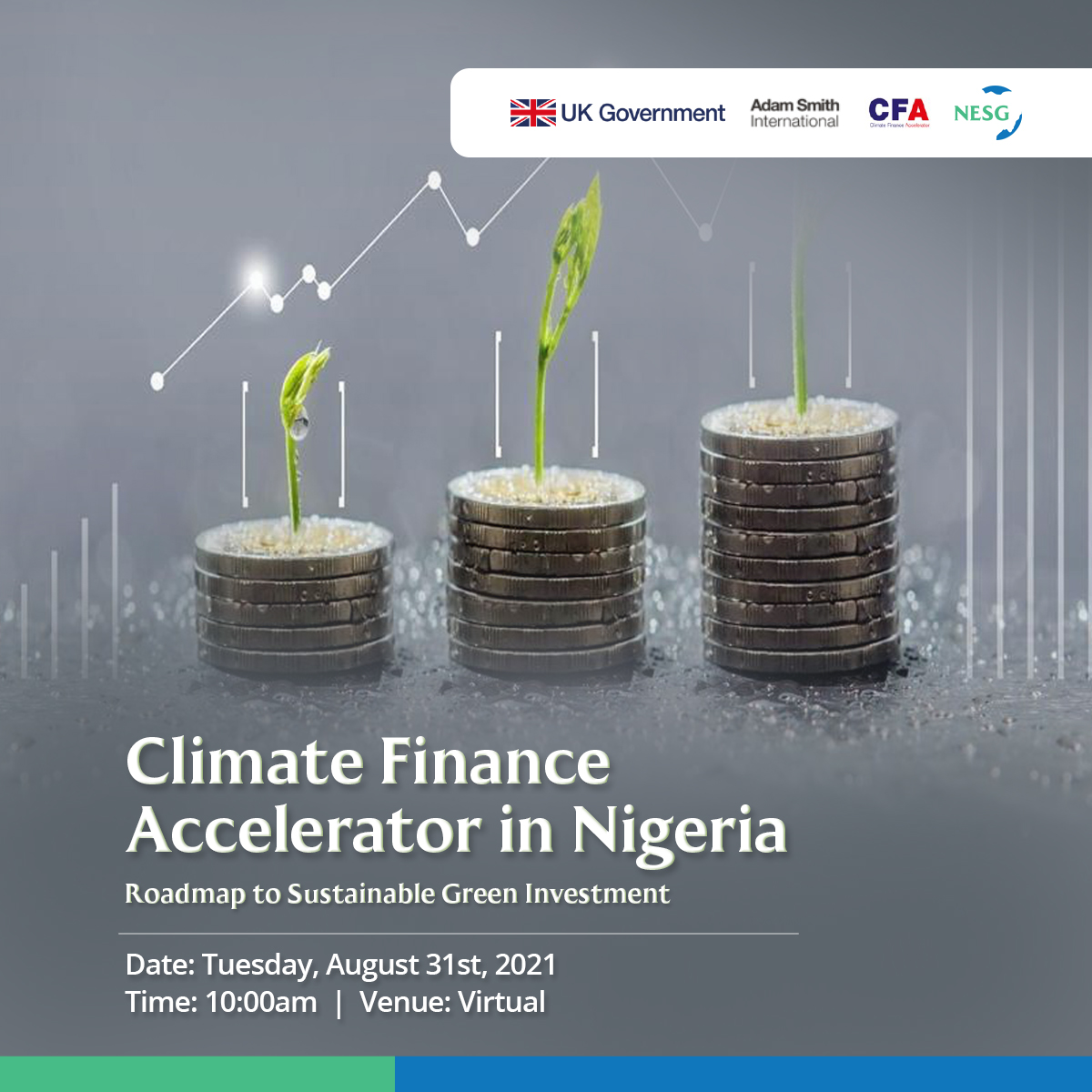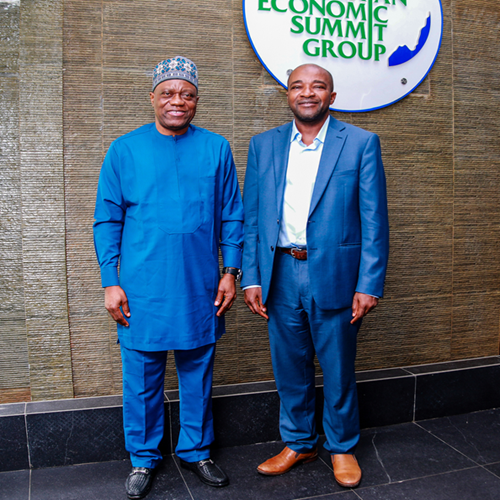Posted Tue, Aug 17, 2021 5:26 AM
Timeframe: Mon, Aug 30, 2021 7:00 PM - Mon, Aug 30, 2021 7:00 PM
Climate Finance Accelerator (CFA) Stakeholder Engagement Workshop with Financial institutions and Project Proponents

The Climate Finance Accelerator (CFA) is a four-year technical assistance programme funded by the United Kingdom Department of Business, Energy & Industrial Strategy (BEIS). The programme will work closely with eight middle-income countries, Nigeria being one of them, and support them to develop a sustainable pipeline of bankable, low-carbon projects and identify suitable financing options. The programme will also contribute to embedding a permanent CFA in each country to identify financing for low-carbon projects to support countries’ efforts in implementing their Nationally Determined Contributions (NDCs) and raising their overall climate ambition. Six countries have already been identified: Colombia, Nigeria, Mexico, Turkey, South Africa and Peru.
In Nigeria there is currently no comprehensive plan to direct private finance towards the NDC and strategies such as the Economic Recovery and Growth Plan, the Medium-Term National Development Plan or Agenda: 2050, that will enable Nigeria meet its Paris Agreement obligations. The Nigeria Sustainable Finance Roadmap (UNEP-FI and FMDQ, 2018) estimates an annual need of $92 billion between now and 2030. Currently about one tenth of this sum is considered to be available in the market, demonstrating the scale of the challenge and the immense opportunity.
In between 2017 and 2019 two Nigerian CFA pilots made some headway in achieving the objectives above, notably in convening project proponents and financial institutions, building a coalition for action, and raising awareness of the need for climate finance and how to raise ambition. Now the intention is to design and launch a permanent CFA hosted by a Nigerian institution with the following objectives:
- Identifying low-carbon projects that can help Nigeria meet its NDC targets, as well as its economic development objectives and other co-benefits such as adaptation;
- Developing the commercial structure of these projects to the stage where they can attract primary finance, typically initially in local capital markets;
- Securing this primary finance, which in many instances will involve blended finance techniques capable of funding projects at scale;
- For projects of a certain scale and from relevant sectors (e.g. renewable energy, buildings or transport), refinancing these projects into green bonds and similar investment instruments that are attractive to global capital markets;
- Raising awareness and knowledge of climate finance challenges and opportunities and of Nigeria’s policy and institutional framework for climate action;
- Incentivising and advising on improvements to the enabling environment for climate finance and addressing market failures;
- Creating a climate finance coalition for action between the finance sector, business and government.
Find an event
Latest Releases

NESG and NBS Hosts Sensitisation .. Read
54 minutes ago

NESG Stanbic IBTC Business Confi .. Read
2 days ago

Vision Casting for the Year .. Read
1 week from now
